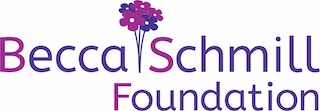(Blog article) – It is now widely understood that social media has cons as well as pros. Social media allows us to stay in touch with friends and family who live far away, and to build supportive online communities with people who share similar interests and/or struggles. Yet, some researchers have been sounding the alarm for several years about the correlation between teens’ increased social media use and their increased feelings of loneliness and depression.
Social media platforms, such as Snapchat, Instagram and Facebook, have been shown to be particularly harmful to adolescent girls. This is partially because adolescent girls use social media platforms much more frequently than adolescent boys (who tend to be drawn to video games). In addition, more so than for boys, adolescence heightens girls’ self-consciousness about their changing bodies and where they fit in socially. For teens struggling with body image, anxiety, and/or other mental health issues, negative social comparison can be extremely harmful. Ironically, social comparison intensifies teens’ engagement with social media platforms, resulting in a disturbing mental trap.
The 2022 study, “Specification curve analysis shows that social media use is linked to poor mental health, especially among girls,” highlighted the significant link between the widespread increases in poor mental health in adolescent girls and the increased use of social medial platforms such as Snapchat, Instagram, and Facebook. Additionally, according to eating disorders expert and Research Scientist at Boston Children’s Hospital, Dr. Bryn Austin, the extended exposure to toxic content (e.g. pictures of anorexic teens in the feed of a girl who is concerned about her weight) can send teens into a dangerous spiral. Incredibly, this is by design.
Facebook’s leaked internal research showed that Instagram’s algorithms are expressly designed to push teens toward toxic content with the goal of keeping them on the platform longer. This did not surprise Dr. Austin or many of her colleagues who have been seeing the results of these algorithms for several years now. According to Dr. Austin, the rates of clinical level depression, anxiety, suicidality, and eating disorder cases among adolescents have increased dramatically in the U.S. since 2010. (Self‐poisonings among 10 to 12‐year‐old girls quadrupled; hospital admissions for self‐harm tripled among 10 to 14‐year‐old girls; major depressive episodes among 12 to 17‐year‐old girls increased 52%, from 13.1%; emergency room visits for suicidal ideation and suicide attempts nearly doubled among children and adolescents; and suicide among 10 to 14‐year‐old girls doubled. (Source: https://prcp.psychiatryonline.org/doi/10.1176/appi.prcp.20190015.)
Despite what we know from research and from the concerns expressed by doctors in the field, little has been done to force big tech to stop their alarming manipulation of children. In an effort to finally hold big tech accountable, Dr. Austin recently began a research study looking at possible legal deterrents, as well as state governmental action, to change social media platforms’ operating model, make algorithms public, and reduce the harm to users. The Becca Schmill Foundation is proud to be funding the initial stage of this research.
The Senate has also recently taken a step in the right direction with the Kids Online Safety Act. While there are many obstacles this bill must overcome to be signed into law, the suggested actions below will make passage more likely.
- Contact your Senators to voice your support for the bipartisan Kids Online Safety Act, co-sponsored by Sens. Richard Blumenthal (D-Conn.) and Marsha Blackburn (R-Tenn.)
- Contact your Representative and ask that a similar bill be presented in the House.
Recommendations for reducing social media harm at home:
- Require that everyone’s phones go into a basket at mealtimes and at bedtime.
- Add a social media monitoring app like Bark to your child’s phone.
- Keep dialogue open about how content and ratings can impact the way young people feel about themselves.
- Send the letter below, requesting reasonable actions be taken by your local school committee and school administration, to pause the use of harmful social media apps for school-related communications.
Thank you for your support!


